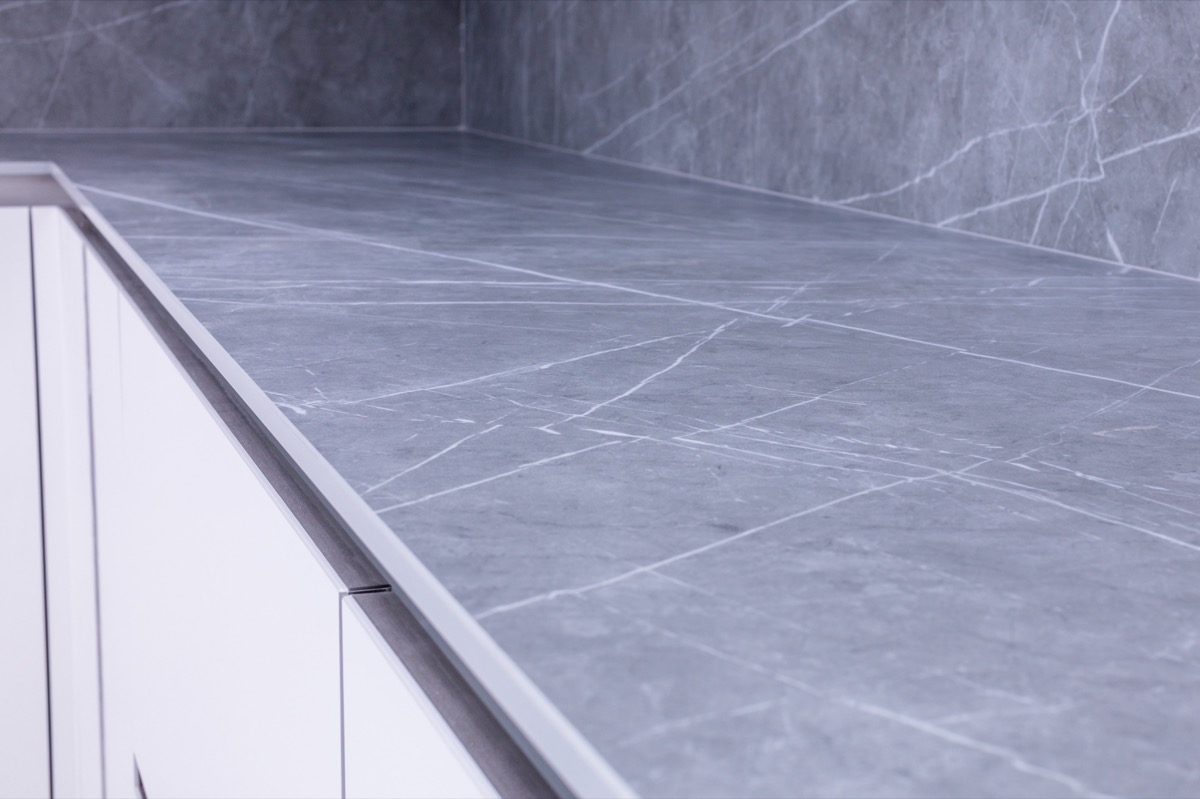So, you’ve finally chosen your kitchen. You’ve even thought of the appliances, and have an idea of the type of floors you will be laying in your brand new kitchen. But one big question remains; what worktop should you buy? With so many options and choices available, this can be as difficult a decision as the kitchen cabinets themselves!
Real Wood or Laminate, Quartz or Dekton? Corian or Marble? What about Granite? Below are some highlights of the various different options to consider that we have seen as the most popular choices amongst our customers.
Laminate
When your budget is tight, laminate becomes the obvious first choice. Laminate worktops come in many colours and can be cut and fitted by a builder or a DIY enthusiast. Laminates are manufactured by layering a waterproof resin impregnated sheet of paper over a chipboard block, they are available in a limitless supply of patterns, including plain, stone and wood. Laminates do not require any special maintenance but they have relatively poor heat, scratch and water resistance compared to other options, and the joints are prone to damage from both heat and water in the longer term.
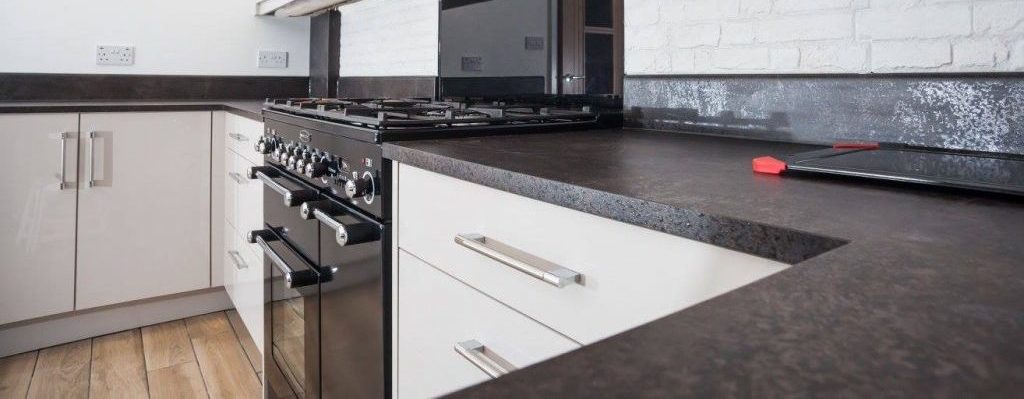
Solid Wood
Oak, teak, iroko and walnut are all popular choices for the lovers of the warm natural “homely” look in their kitchens. The wooden worktops look great and match almost all kitchen styles and colours. However, they are made of wood and therefore, can stain, scratch and are prone to water damage and burns if care isn’t taken. Wood generally requires some degree of maintenance, i.e., in the first week of the wooden worktop installation, you’d need to oil it every day, then once a week for the next month, and then ideally, every 3 months after that. If you don’t mind a lot of elbow grease, you will be rewarded with a beautiful rustic look for years to come.
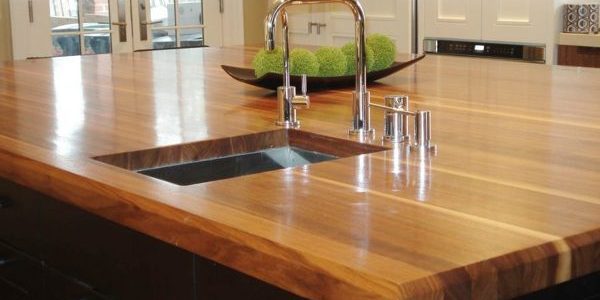
Granite
A popular option for people who prefer a natural and unique look. Granite is a naturally occurring stone and extremely heat resistant. When properly sealed, it’s water and scratch resistant but any wine or acidic spills need to be wiped off immediately to avoid damage to the stone. Due to its popularity and outstanding quality, granite can be quite expensive. It is also very heavy, and can need extra support.
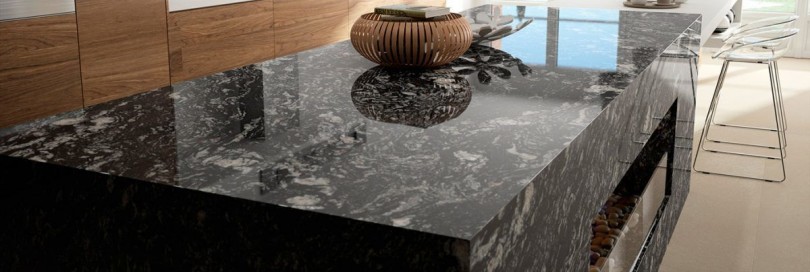
Glass worktops
Not a cheap option, glass worktops work well in smaller spaces in contemporary kitchens. They are heat resistant and hygienic, and the new toughened glass is less prone to scratches and chipping. With lighting placed underneath it can brighten a dark kitchen and bring a real Wow factor to any kitchen. However, being glass, it will show smudges and marks more visibly than other options so be prepared for cleaning the work surfaces with a glass polish regularly to showcase its true gleam.
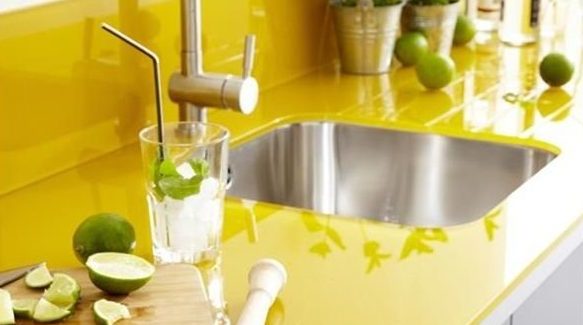
Stainless steel
If you are after an industrial modern look, a steel worktop might be your choice. Very durable, it is also water, heat and acid resistant. Steel is however prone to scratching though so if this is the right option for you, it’s worth considering brushed steel. With a white or dark grey gloss kitchen, it will look modern and different.
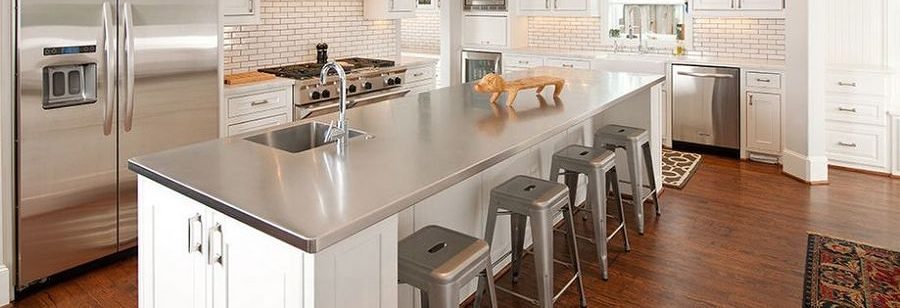
Concrete
Another option for those who are looking to achieve an industrial look. A concrete worktop is heavy duty and heat resistant, but it is still prone to scratches. It also needs to be properly sealed, or will easily stain. Concrete slabs are very heavy and need reinforcement. They are also quite expensive.

Corian (and other acrylic based solid worktops)
A very popular choice amongst customers who want a clean seamless look. Corian can be moulded into any shape, and typically come with integrated sinks and draining boards. You can also achieve curved islands, all completely seamless. It’s completely water proof, heat resistant to a point, and claims to be stain resistant, however, we believe lighter colours might still show some staining (there are several forums where customers have discussed this). Corian is prone to scratches, but can be polished back to it’s original glory.
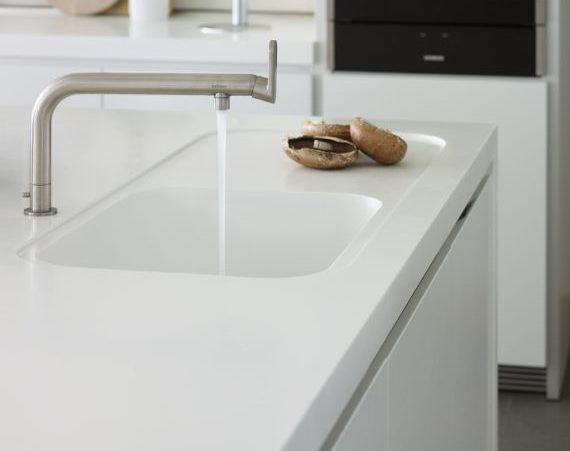
Marble
With it’s natural clean beautiful look, marble has been installed in many kitchens. It’s timeless appeal never wears off. Cheaper than granite, marble has attracted quite a following. But while granite is practically indestructible, marble is a much softer stone prone to staining (even from hard water), chipping and etching. So if you are planning to do a lot of cooking and socialising in your kitchen, marble might not be your first choice, no matter how much you like the look of it.
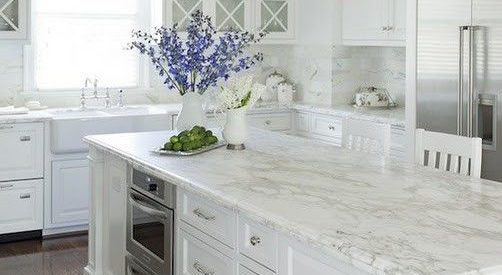
Quartz
One of my favourites. Quartz worktops have gained a massive popularity over the last decade. Made up of 90-95% natural quartz crystal and 5-10% resins, pigments and anti-bacterial agents, quartz has become a common feature in a large proportion of kitchens. With a great variety of manufacturers, colours and finishes, quartz is a great choice to use practically anywhere. It is water, scratch and stain resistant, and is available in wider slabs than granite, allowing for wider islands and peninsulas without requiring a join. Also, marble, granite, glass or metal “looks” are all available in quartz. Check out worktops from Classic Quartz, Quartzform, Caesarstone, Quarella, Silestone or Unistone, and you will be spoilt for choice.

Dekton
Straight from the Dekton website “Dekton is an ultracompact surface that consists of a sophisticated blend of the raw materials used to produce the very latest in glass and porcelain as well as the highest quality quartz work surfaces”. A relative newcomer to the market, Dekton is heat, stain, UV, scratch and abrasion resistant, an ultimate worktop to have. Dekton comes in a variety of colours, polished or matt. Considerably more expensive than quartz, because its more difficult to fabricate, Dekton has become a very popular choice gaining more and more popularity in recent years.
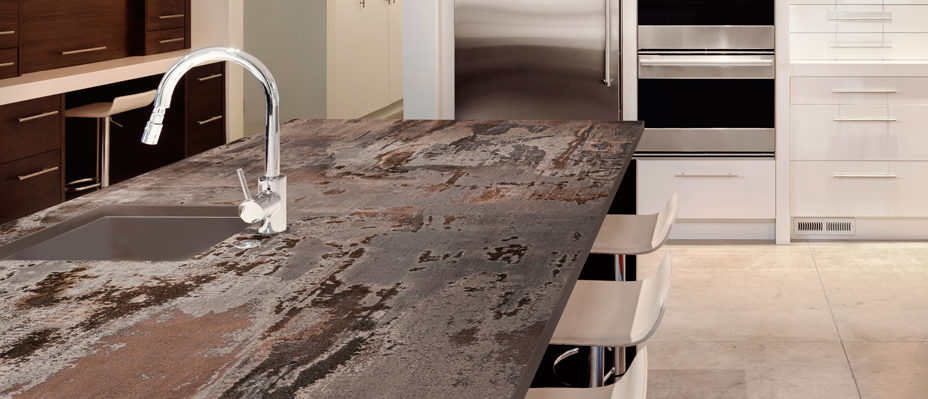
Neolith
Another relative newcomer, it mainly consists of 3 elements: granite minerals, minerals from silica and glass and natural oxides. All those elements are then treated by Sintering Technology: subjecting the natural materials to very high temperatures and pressure. These techniques make Neolith practically indestructible. Neolith surfaces are resistant to high temperatures, resistant to UV rays, resistant to ice and freezing, resistant to bending, scratch resistant, waterproof, hygienic, scratch resistant, easy to clean, and 100% natural. It also requires no maintenance. Neolith comes in a variety of thickness for different applications: 3, 6, 12 and 20mm. It offers unprecedented finishes for all tastes: fancy a marble effect? Go for Neolith Estatuario. Like a quartz look? Choose from Fusion Neolith. Prefer Iron and Copper? Discover Neolith Iron range. Set your heart on a wooden effect worktop? There’s Neolith Timber. Or if you’re after an industrial kitchen but without the scratches that effect steel? Neolith Steel Marengo may be the answer. Needless to say, if it wasn’t for the hefty price, we’d recommend these worktops to every customer!
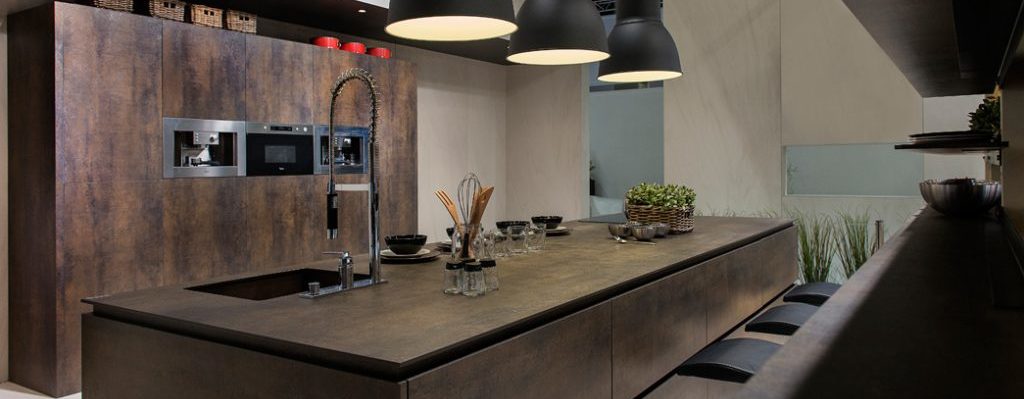
So, in summary, choosing a worktop can be confusing. Understanding what matters to you most and what sort of look you are are trying to achieve as well as what your budget is will help to steer you in the right direction. Whichever worktop you choose, it has to fit your lifestyle and kitchen style. There are no right or wrongs, just a lot of options! .

